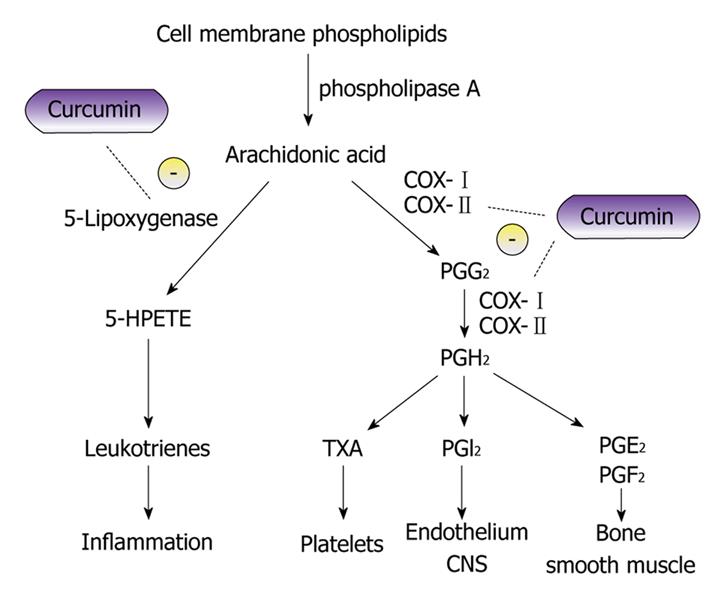Copyright
©2010 Baishideng.
World J Gastrointest Oncol. Apr 15, 2010; 2(4): 169-176
Published online Apr 15, 2010. doi: 10.4251/wjgo.v2.i4.169
Published online Apr 15, 2010. doi: 10.4251/wjgo.v2.i4.169
Figure 1 Diagram showing curcumin and its potential inhibitory effects on the metabolic pathway of arachidonic acid.
The anti-inflammatory properties of curcumin can be attributed to its effects on many molecular targets, 5-lipoxygenase and cyclooxygenase to name a few. Curcumin has been found to inhibit 5-lipoxygenase in-vitro in a concentration dependent manner in mouse epidermal cells[6]. The proposed mechanism of cyclooxygenase (COX) inhibition is believed to be due to the inhibition of Nuclear factor κ-light-chain-enhancer of activated B cells (NF-κB) activation[53].
- Citation: Park J, Conteas CN. Anti-carcinogenic properties of curcumin on colorectal cancer. World J Gastrointest Oncol 2010; 2(4): 169-176
- URL: https://www.wjgnet.com/1948-5204/full/v2/i4/169.htm
- DOI: https://dx.doi.org/10.4251/wjgo.v2.i4.169









